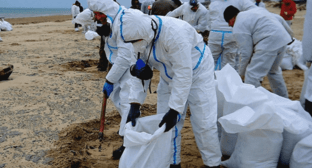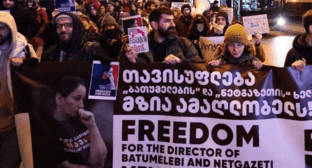
21 October 2017, 03:53
Scientists argue about Caucasus borders
Historians, sociologists, geographers, economists, and ethnographers have not yet determined where the borders of the Caucasus pass. The United States and the EU politically distinguish the Caucasus, including also as a territory for the transit of energy resources from Central Asia. This was noted by participants of a seminar held at the Moscow State Institute of International Relations (known as MGIMO).
After the collapse of the USSR in 1991, the usual understanding of the Caucasus was lost, and the borders in the region resemble broken glass dangerous to walk on, noted Professor Alexei Gunya. According to Lyubov Soloviova, Senior Researcher of the Caucasus Department at the Institute of Anthropology and Ethnography (IEA) of the Russian Academy of Sciences (RAS), the boundaries of the Caucasus were historically formed under the influence of the Russian Empire.
On October 20, the 22nd meeting of the seminar "Caucasus in the past and present (society and politics, economy and culture)" was held, the "Caucasian Knot" correspondent reports.
According to Alexei Gunya, Doctor of Geographical Sciences, Senior Researcher at the Institute of Geography of the Russian Academy of Sciences and the scientific adviser to the North-Caucasian School of Conflictology, there are different approaches to delineating the geographical boundaries of the Caucasus. In particular, the boundaries can be determined by the settlement of peoples.
For a long time, the southern border of the Caucasus historically passed along the borders of the former USSR, although there are mountains of the Caucasus in Turkey and Iran.
"By its actions, Russia has led to the creation of a barrier between Southern and Northern Caucasus," added Alexei Gunya.
Nevertheless, according to the Professor, after 2008, Russia strengthens its role in regionalization in the Caucasus and shows "who is the master here."
Alexei Gunya has also noted that the Caucasus can soon face not only political or economic problems, but also serious environmental threats.
Full text of the article is available on the Russian page of 24/7 Internet agency ‘Caucasian Knot’.
Author: Rustam Djalilov Source: CK correspondent




